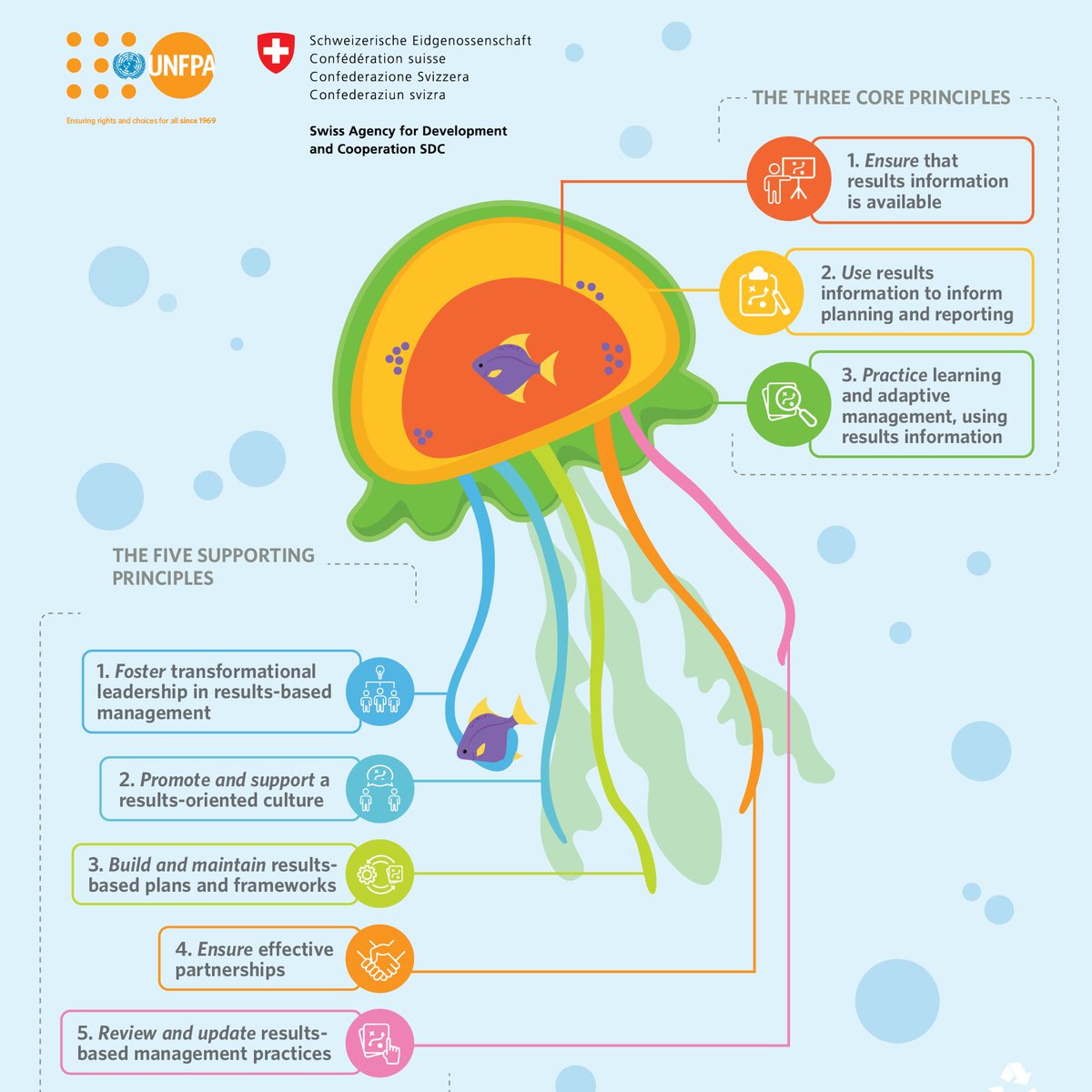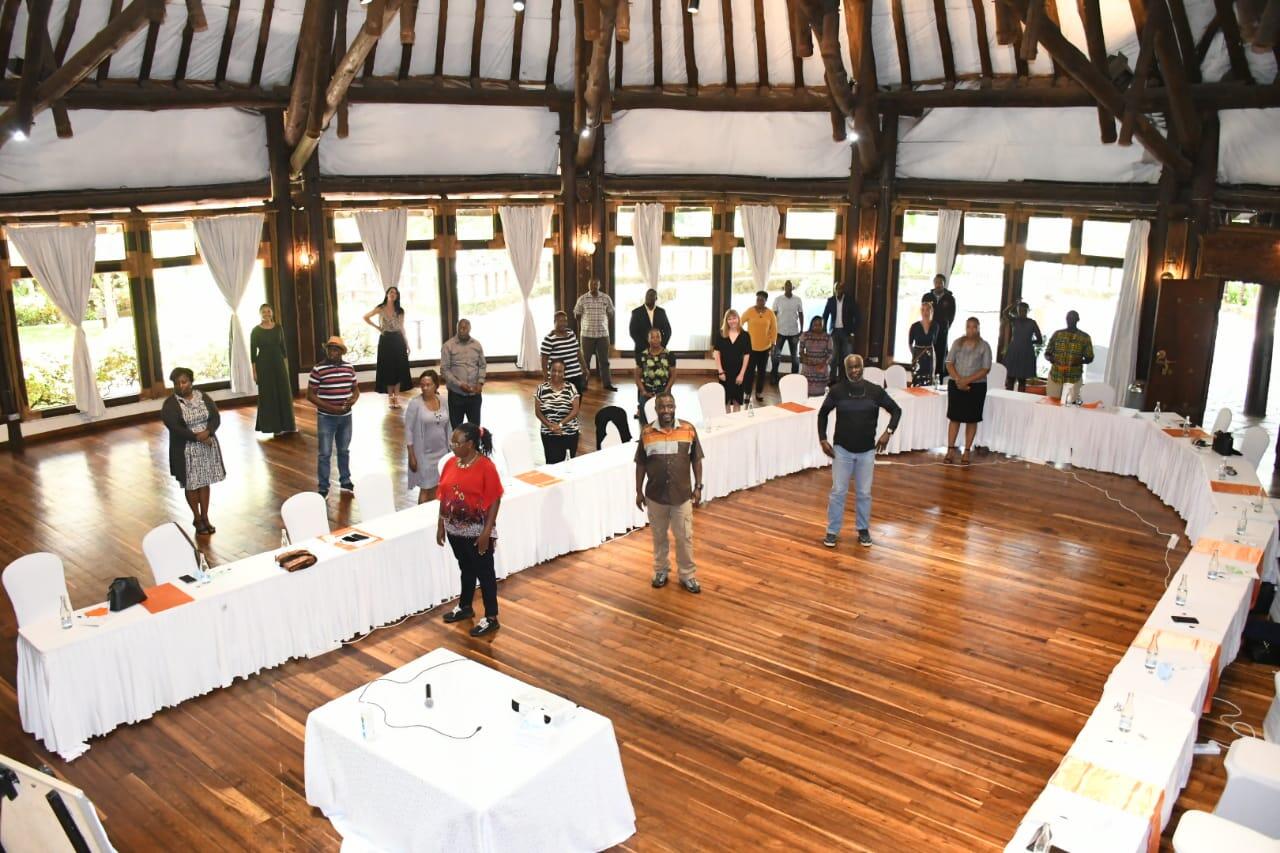In 2019, the Kenya Country Office was among 12 pilot countries that applied and was selected to participate in the roll-out of the results-based management (RBM) Seal, a corporate certification used to assess the performance of UNFPA country offices in results based management. The Country Office first conducted a self assessment in 2019 to develop a baseline and establish our position as relates to the RBM core principles. The findings of this assessment showed that out of the 31 standards rated, 16.7% were fully met, 48.7% partially met, 27.8% minimally met and 6.8% not met. A limited culture of using results information for decision-making was also highlighted in the findings. The results culture was found to be largely focused on accountability for funding and reporting. The lack of capacity and motivation of staff to manage for results was one of the key causes identified to be behind the poor culture of using results information in the organization. Based on this assessment, the office, through participatory methods, identified the programmatic and operational needs to be addressed in order improve its ratings for each RBM standard. This informed the development of an RBM Advancement Plan (RAP), to guide in strengthening the RBM culture at the Country Office.
The team recently participated in a second exercise to reflect on the successes and challenges encountered in adopting the RBM seal. Through a self-assessment, staff members were able to interrogate the extent to which the RBM seal has facilitated the Country Office in shifting our focus from measuring and reporting results, to accountability, learning and adaptive management. This was followed by a focus group review of the findings of the self assessment, facilitated by Josep Coll, from the development evaluation office at Headquarters. The joint discussion examined the findings through an evaluative lens to learn what worked and what didn’t work in piloting the RBM Seal.
Here are 5 key takeaways emanating from the session:
- The RBM seal was useful in helping teams plan with results in mind. The 3+5 principles were found to be clear with a standardized approach that enabled teams to learn and adapt plans in order to achieve the desired results. Having a clear and results-based plan in place helped the country office to measure key results and prioritize resources to achieve the desired outcomes. One of the successes noted by the country office has been an improvement in KCO’s ability to collect results data through implementing partners, by conducting routine monitoring as well as project evaluations. as set out in the RBM Advancement Plan (RAP).
- By referring to the RBM Seal principles, staff were able to identify instances of transformational leadership within the office. The KCO benefited from leadership by example particularly in dealing with challenges brought about by the Covid-19 pandemic. The representative at his level led teams in fieldwork missions, and the office organized learning sessions for staff focused on increased accountability and developing a results-focused mindset. This helped the country office implement the planned activities and achieve results in the midst of the pandemic.
- There is need for continuous learning and building of staff capacity around the RBM Seal and results based management in general. Particularly, the induction of new staff on the RBM Seal principles should be coopted into the mandatory learning plan. Where country office teams have not met the required standards set by the RBM seal, training should be offered on how to strengthen the teams’ capacity in those areas. Turning raw data into information that can be understood and used by the entire team is key to the RBM process and in ensuring full utilization of results information. This area was identified as one that requires greater investment by the country office.
- RBM Seal activities should be more seamlessly incorporated into regular programme work so as not appear as a parallel initiative, but rather a part of strengthening programme implementation. At the Kenya Country Office, periodic opportunities taken to reflect during work planning, program reviews, and regular staff meetings helped with the identification and documentation of good practices. This also ensured that interventions remained evidence based and relevant to new developments, with an emphasis on planning of results.
- Results Based Management and attaining the gold certificate in the RBM seal requires a collective effort that must be driven by all staff. The KCO team felt that the piloting RBM seal and dedicating time for all staff to get together at workshops was valuable as it brought together the entire office in contributing towards the RAP, whereas other RBM initiatives tend to involve programme staff or M&E staff in isolation. Words used by staff to describe the RBM Seal experience include “collaborative,” “participatory,” and “inclusive.”

for results-based management with learning and adaptation at its core.
Results from a survey conducted with the Country Office team showed that a total of 65 percent of KCO staff reported that the RBM Seal as an instrument to advance the RBM culture was "somewhat effective". The RBM seal strengthened the UNFPA KCO in assessing existing procedures and ways of working with a results based lens and understanding how we already programme and plan strategically based on results. Implementation of several activities in the KCO RAP that required face to face interaction, became a challenge at the onset of the Covid-19 pandemic. Moreover, there is a need for a clear roll-out plan of the RAP with accountability mechanisms to foster greater ownership among all staff. Most staff may, however, not have been able to conceptualize the value addition of the RBM seal to the operations and learning in the office.
The new normal dictated by the Covid-19 pandemic meant that the RBM Seal Pause and Reflect exercise had to be undertaken virtually. The country office team deployed various tools to collect staff feedback and reach consensus on various elements of the review. The team utilized the zoom polling function to carry out the review survey and gather the polling results. In order to dive deeper into the reasoning behind the results, the country office staff were invited to share their thoughts anonymously using mentimeter, an interactive meeting platform that allowed for real-time inputs into the discussion.
The Kenya Country Office RBM Seal focal points were able to share the tools and approaches used during the RBM seal review exercise with counterparts in the UNFPA Senegal and Egypt office, including providing a quick tutorial on the use of zoom polling function, and deployment of breakaway rooms to facilitate more in-depth discussions amongst smaller groups.
A true example of South-South cooperation in strengthening results-based management in UNFPA!


